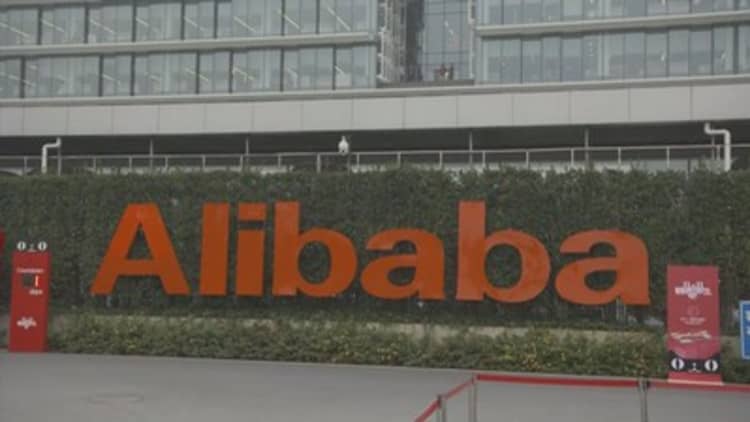
China's economic rebalancing towards more consumer-oriented growth has global businesses cautious, but pessimists need only look at the country's annual e-commerce event for a powerful reminder of consumer buying power.
Created by a group of young Chinese in the 1990s, the holiday known as Singles Day was originally a way to celebrate single life. Held on November 11 every year, it's popularly described as 'China's anti-Valentine's Day.'
As the holiday acquired nation-wide popularity, Alibaba became the first major company in 2009 to monetize the holiday by launching a special online sale and effectively transforming the day into the world's biggest 24-hour online shopping event, one that reflects the growing wealth of China's middle-class. Other e-commerce players like JD.com have since began offering their own Singles Day sales too.
This year, the holiday—also referred to as Double 11—could record its best performance yet.
According to a new Nielsen survey, 56 percent of more than 1,000 internet users in China said they would increase spending compared with 2014. The average expected spend amongst all respondents this year is 1,761 renminbi, or $277—an increase of 22 percent from last year, Nielsen added.
If correct, that could likely see Alibaba sales hit $10 billion in a 24-hour period for the first time.
Read More Cloud wars: Amazon, Alibaba make big moves
Last year, the e-commerce behemoth booked a record $9.3 billion in sales, more than four times the $2.4 billion sold on Cyber Monday, the biggest online sales day for the U.S. that falls on the first Monday after Thanksgiving.
"It's not a huge surprise that consumers are planning to spend more during this year's 'Double 11.' Income levels and internet penetration continue to rise throughout China, so this is a natural progression," said Yan Xuan, President of Nielsen Greater China.

This year, more than 1,000 retail brands, representing 180,000 stores in 330 mainland cities, will participate in Alibaba's event, according to a recent press release. It's not just China-focused either; 5,000 overseas brands from 25 countries such as the U.S, Europe, Japan and South Korea will be available.
Three-out-of-five respondents in Nielsen's survey say they will purchase or consider purchasing overseas products this year.
"As Chinese consumers become increasingly sophisticated, their desire for high quality and niche products is also rising. In line with this trend, more and more consumers are turning to cross-border and overseas purchasing," Nielsen noted.
Early bird promotions and preorders are becoming an increasingly effective means for e-commerce players to drive more traffic to their sites and lock in purchases, with over 90 percent of Nielsen's respondents intending to place items in their online carts before November 11th as to avoid products selling out.
As the event grows every year, slower shipping and delivery times remain problematic for consumers, as mentioned by 62 percent of the survey's respondents.
Logistics companies say they are using every tool possible to maximize efficiency.
"It will be better this year as we are using data and pre-orders to prepare for goods in advance," said Karen Wang, partner at JX E-Commerce & Logistics.
Meanwhile, Cainiao—the logistics affiliate of Alibaba—has unveiled special arrangements for this year's event that should deliver goods in less than two hours time for certain customers, according to a recent statement.

